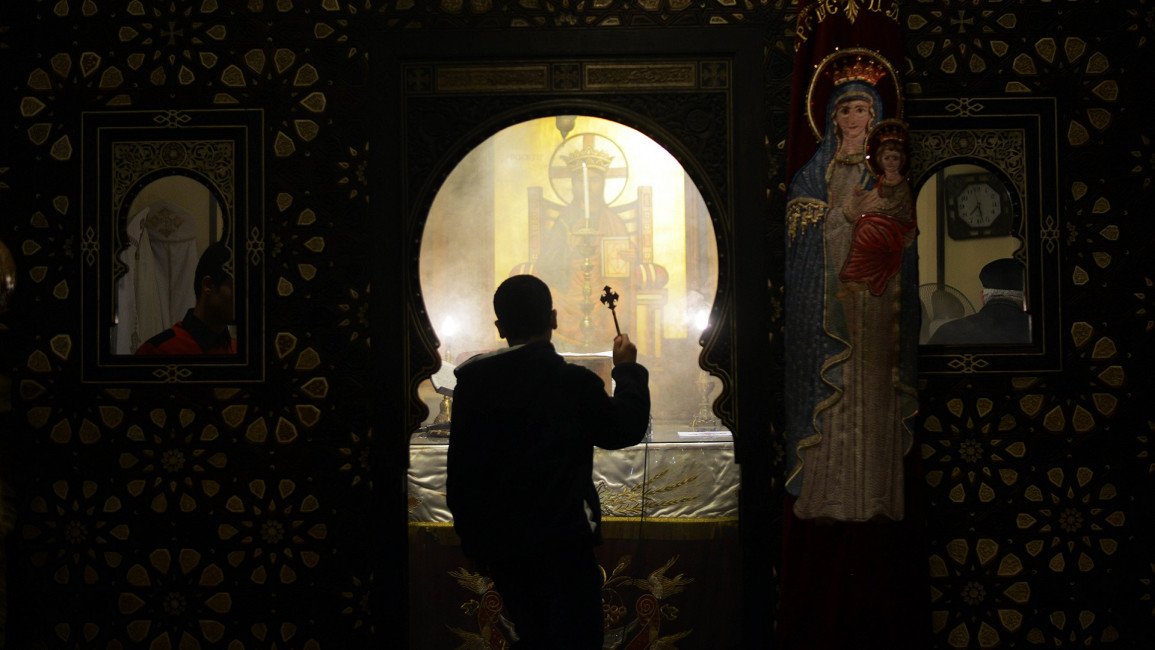From East to West: Celebrating Christmas in Egypt
The holiday season is upon us and Christmas celebrations will be in full swing very soon. Although Egypt is primarily a Muslim country, that doesn’t mean we don’t do Christmas. With around 10% of the population being made up of Coptic Christians, in addition to a diverse community of expats, there are plenty of people here who do celebrate. In fact, even those who aren’t Christian join in the celebrations; Egyptians are more than happy to celebrate anything really and love to come together for important feasts, regardless of religion.
To top it off, Egypt celebrates both western Christmas on the 24th and 25th of December and eastern Coptic Orthodox Christmas on January 7th. Not only do we celebrate here, we do it twice! But the way East and West celebrate can be a bit different.
Most of us are familiar with the decorated pine trees, bearded Santa Claus and the turkey dinners of the West where Christmas falls on December 25th, but those who follow the Eastern Orthodox Church, including Egypt’s Coptic community, follow a different calendar and have slightly different rituals.
The reason for the difference in dates all comes down to the fact that the Orthodox Church in Egypt follows the Coptic calendar, based on the ancient Egyptian calendar, which differs slightly from the Gregorian. Although the exact date of Jesus’ birth is unknown, December 25th, a pagan holiday celebrating the Winter Solstice, was appointed as the day when Christians around the world could celebrate the nativity. According to the Coptic calendar, the Nativity falls on the 29th day of Koiak (or Kiahk), which is January 7th on the Gregorian calendar that most of us use today.
The dates aren’t the only thing that differs between eastern and western celebrations. Those that follow the Orthodox Church also fast for the 43 days that lead up to Christmas to commemorate the time Moses fasted high up on the mountain before receiving the Ten Commandments, eating only plant-based and pescatarian foods. They break their fast on Christmas Eve, after mass, with a feast where Fattah, a traditional rice dish with braised meat and crispy fried bread, is the centerpiece. The menu has changed over the years to include more modern favourites like baked macaroni, roast turkey, kobeiba and mahshi, another local favourite of baked vegetables stuffed with rice. Kahk, the buttery, crumbly round sugar cookies that Egypt is famous for, also make a prominent appearance during Christmas celebrations.
The Coptic community also has its own version of Christmas carols where they sing hymns and praises of the Advent on Saturday nights throughout the month of Kiahk, an important part of their Christmas preparations. And of course, the church is central to any celebration. Practitioners will attend church to take part in the Midnight Praises on Saturdays, joined by angels in praise of God, an act that is believed to bring them closer to Heaven. On Christmas Eve, the church will hold a special Midnight Mass, similar to that of Catholic and Protestant denominations, after which attendees share a piece of bread called “qurban”, marked with 12 dots to symbolize the 12 apostles of Christ. The Pope of the Coptic Orthodox Church also records a spiritual message that is broadcast on television so the Coptic community around the world can take part.
But despite the differences between East and West, there are aspects and rituals that are universal. In the end, whatever denomination you belong to and wherever you are in the world, Christmas is about celebrating the birth of Christ. It’s about coming together as a family and as a community to reflect on the things that matter most in life, and collectively expressing gratitude for the many blessings we have. As the world moves forward, our differences only shrink in size and in importance. East and West overlap more and more each year, and our celebrations are becoming more shared than ever. So whether you’re singing the Hymns of Kiahk or Christmas carols on the 25th – or both! – we can all agree that Christmas is a time for joy and reflection, for unity and for giving. It’s a time to put our differences aside and focus instead on all that is shared. Merry Christmas everyone!



